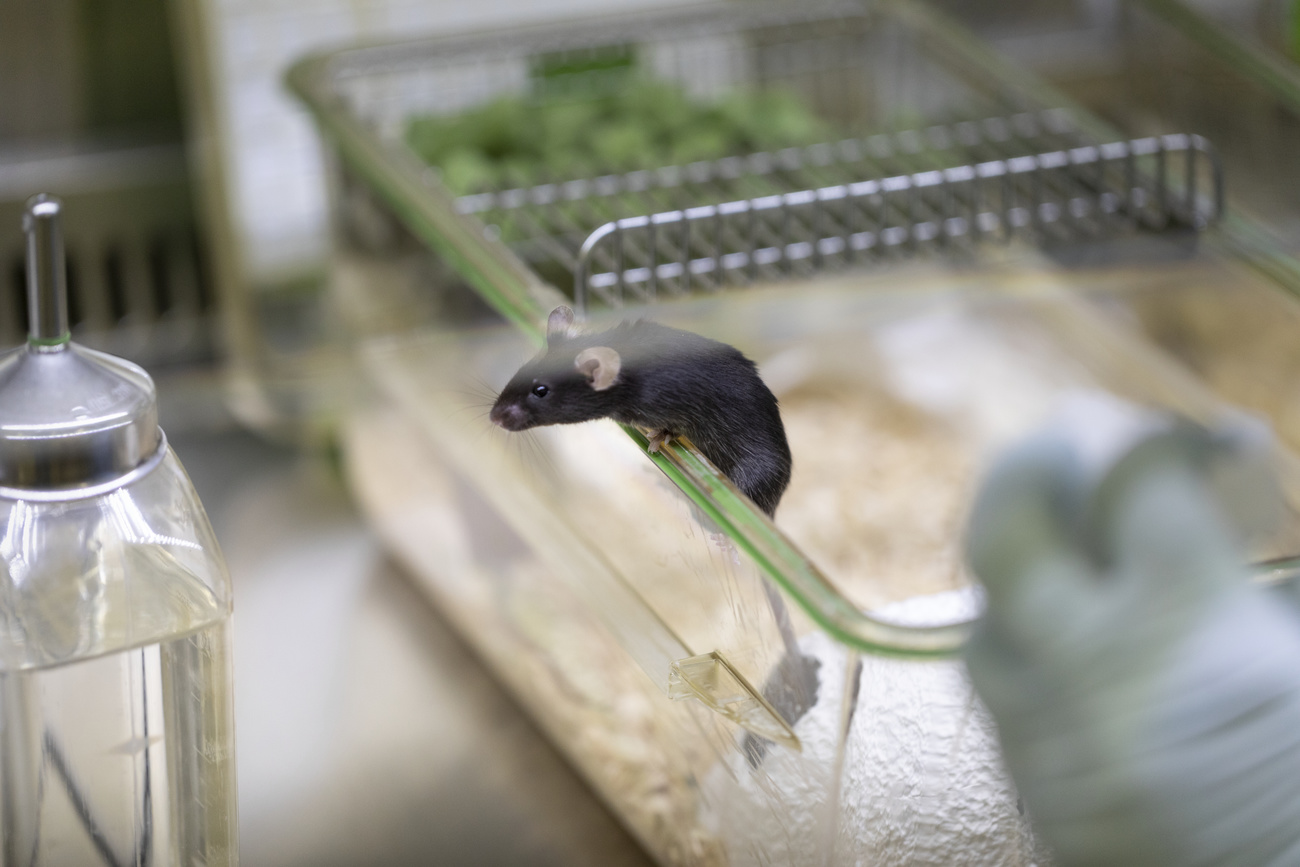
More animal experiments with severe pain suffering

The number of animal experiments in Switzerland has increased - despite fewer research projects involving animals.
According to the federal government, more animals were used in severity level 3 experiments in 2022. This means severe pain, long-term serious damage and great fear for the animals.

More
Swiss voters reject ban on animal testing
The increase in animal testing reflects high level of research activity, the Federal Office for Food Safety and Veterinary Affairs (FSVO) said in a statement on Thursday. The long-term aim is to reduce this.
With 40 fewer research projects with animals last year, the total number of 2,334 tests with animals met the average of the last ten years. However, the number of animals “used in research projects” increased by 2% in 2022.
In total, researchers used 585,991 animals in experiments last year. In a long-term comparison, according to FSVO, the number is in the lower range: according to 2022 animal experiment statistics, between 560,000 and 760,000 animals have been used in experiments annually over the last 20 years.
While fewer mice were used in animal experiments, the number of fish increased significantly. Compared to the previous year, according to the BLV, around 80,000 animals were used in experiments in 2022 – more than twice as many. The increase is due to a high level of research activity in areas such as toxicology, ecology and basic research.
Animal protection organisations see an urgent need for action. The previous approaches were not ambitious enough, wrote the organisations Animal Rights Switzerland, Animalfree Research and Tier im Recht in a reaction.
This news story has been written and carefully fact-checked by an external editorial team. At SWI swissinfo.ch we select the most relevant news for an international audience and use automatic translation tools such as DeepL to translate it into English. Providing you with automatically translated news gives us the time to write more in-depth articles. You can find them here.
If you want to know more about how we work, have a look here, and if you have feedback on this news story please write to english@swissinfo.ch.

In compliance with the JTI standards
More: SWI swissinfo.ch certified by the Journalism Trust Initiative






























You can find an overview of ongoing debates with our journalists here . Please join us!
If you want to start a conversation about a topic raised in this article or want to report factual errors, email us at english@swissinfo.ch.